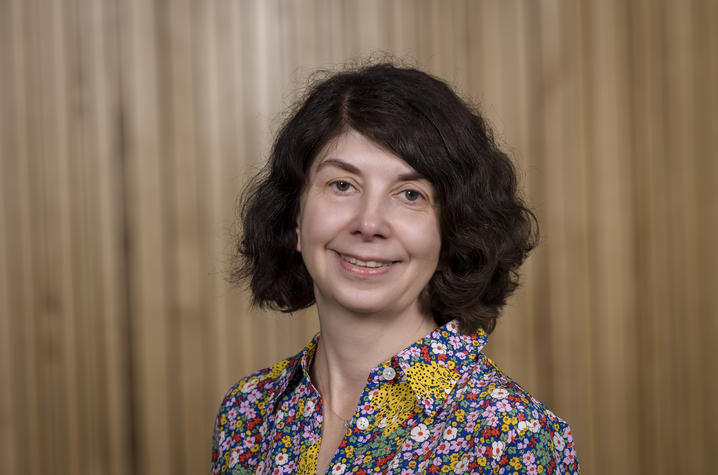UK project on bacteria-focused research selected for Hypothesis Fund seed grant

LEXINGTON, Ky. (June 14, 2024) — A researcher at the University of Kentucky has been selected to receive a seed grant from the Hypothesis Fund for the “boldness of her science and potential long-term impact of her work.”
The Hypothesis Fund supports early-stage, innovative research focused on addressing systemic risks to human and planetary health. They offer seed grants for novel, very early-stage research projects, with the goal of sparking new basic science discoveries.
Natalia Korotkova, Ph.D., is an assistant professor in the Department of Microbiology, Immunology and Molecular Genetics in the College of Medicine. As a microbiologist and biochemist, her work focuses on understanding cell biology of bacteria.
Her project titled “Functional significance of extracytoplasmic intrinsically disordered regions in streptococci” was selected for a seed grant by a Hypothesis Fund Scout — outstanding scientists who identify other scientists to fund.
“I am grateful to the Hypothesis Fund Scout, Dr. Mougous, who saw the potential of my work and pushed for this seed grant,” said Korotkova. “I’m looking forward to what we’ll discover through this project and the impact it could have on Kentucky and our country.”
Korotkova will study the roles and activities of specific parts of membrane proteins in streptococcal bacteria to determine how those contribute to the bacteria’s function, including interacting with a host or adapting to environments.
Korotkova was nominated by Joseph Mougous, Ph.D., a professor of microbiology at the University of Washington.
“Dr. Korotkova is seamlessly combining bacterial genetics and physiology with in-depth biochemistry to understand the regulatory mechanisms of intrinsically disordered regions (IDR) in bacterial proteins — all while keeping an eye on the human pathogenic side of the organisms,” said Mougous. “Her project could reveal bacterial IDRs as a fruitful and important area of investigation, with especially broad ramifications on the field of microbiology.”
As the state’s flagship, land-grant institution, the University of Kentucky exists to advance the Commonwealth. We do that by preparing the next generation of leaders — placing students at the heart of everything we do — and transforming the lives of Kentuckians through education, research and creative work, service and health care. We pride ourselves on being a catalyst for breakthroughs and a force for healing, a place where ingenuity unfolds. It's all made possible by our people — visionaries, disruptors and pioneers — who make up 200 academic programs, a $476.5 million research and development enterprise and a world-class medical center, all on one campus.




